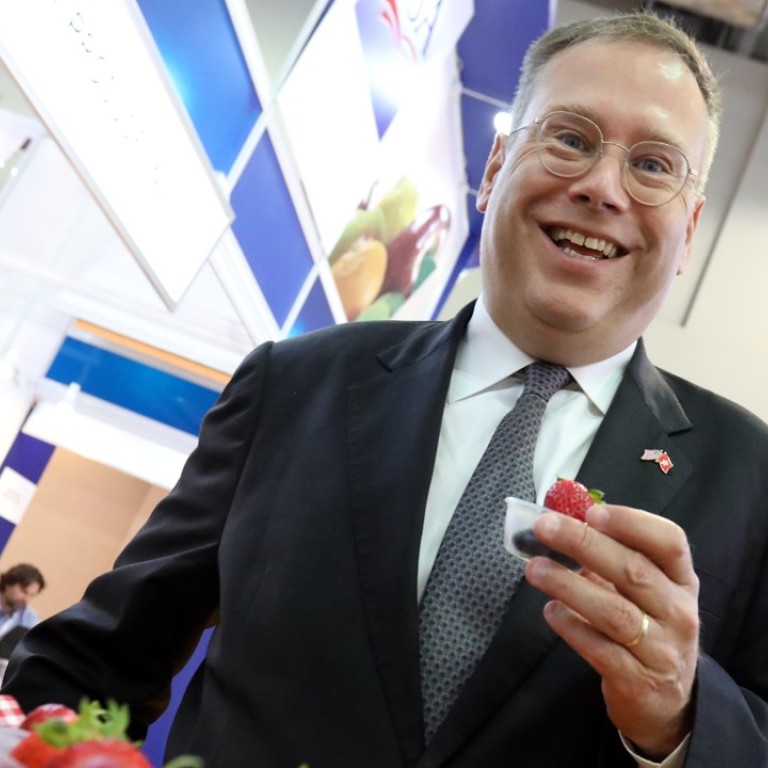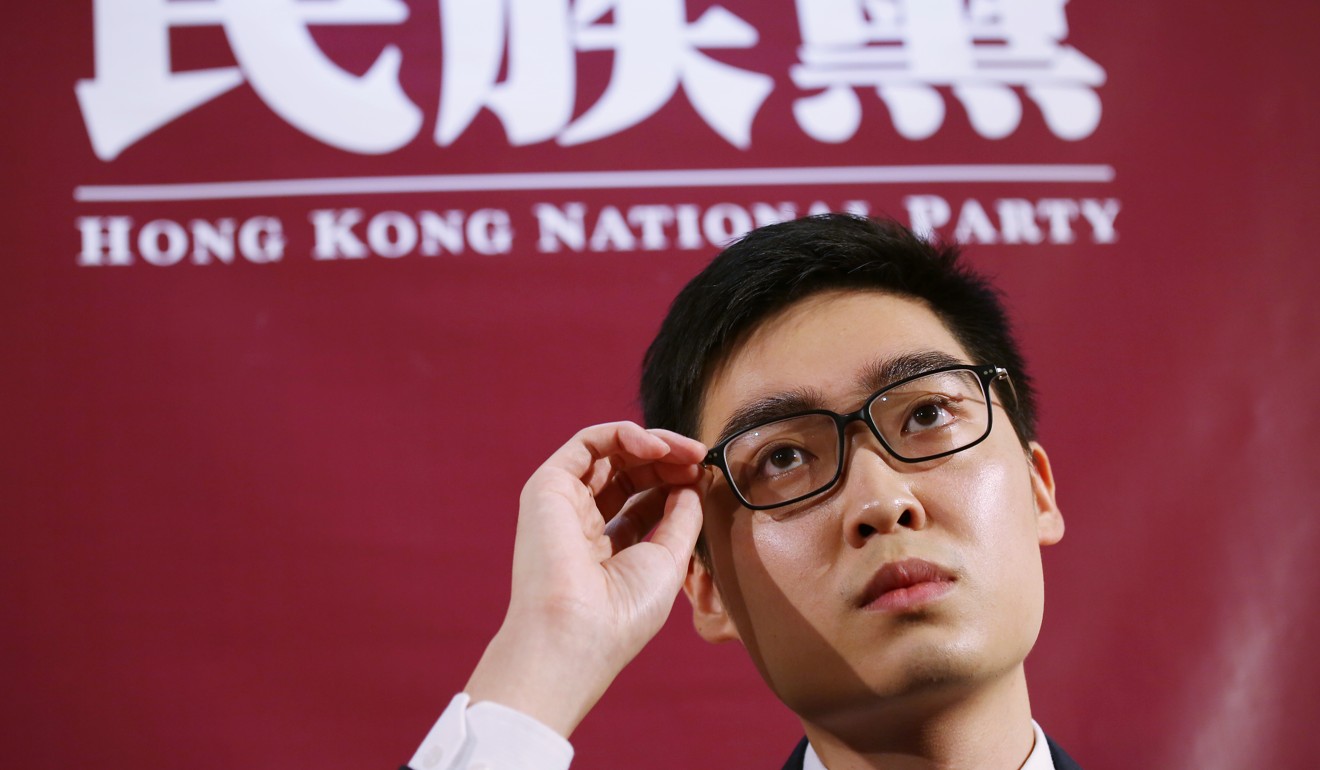
US Consul General Kurt Tong dismisses Hong Kong National Party’s call to punish city by applying US-China trade war tariffs
Separatist party convenor Andy Chan had written to US Department of State arguing there was no longer sufficient basis to treat Hong Kong differently to the mainland
The United States’ top envoy in Hong Kong has brushed aside a local separatist party’s call for the country to apply its China-targeted tariff and trade policies to the city.
Kurt Tong, the US consul general in Hong Kong, reaffirmed the “very good relationship” between Washington and the city’s government.
His remarks came after the Hong Kong National Party (HKNP) wrote to the US Department of State calling on Washington to suspend the differential treatment on trade between the city and mainland China under the US-Hong Kong Policy Act. The party said such a move was warranted due to what it called an erosion of the city’s autonomy and freedom under Chinese rule.
The policy act, enacted in 1992, has stipulated the White House’s policies on Hong Kong since the city’s handover from British to Chinese rule in 1997.
The US president can with an executive order suspend the special treatment if he or she determines Hong Kong is not “sufficiently autonomous”.

After a consulate function on Wednesday, Tong said he did not anticipate any changes.
“We’ve already been very clear on that,” he said.
“The degree of autonomy Hong Kong enjoys is still more than sufficient for the Hong Kong Policy Act to remain in force.”
Tong also reaffirmed the “very good relationship” between the US and Hong Kong despite recent hiccups.
National Party gets extra week to submit arguments against ban
“We look forward to maintaining that for many, many years to come in the future,” he said.
The HKNP, which is currently facing a proposed ban and has until September 14 to register its opposition, earlier made a similar appeal in an open letter to US President Donald Trump. The party urged the president to have both Hong Kong and China kicked out of the World Trade Organisation.
The Trump letter sparked severe criticism from the Hong Kong government.
In the latest letter, written to the US Department of State on September 1, HKNP convenor Andy Chan Ho-tin argued there was no longer sufficient basis for the country to maintain differential treatment for Hong Kong. He cited the local government’s attempts in recent years to bar candidates from running in elections on grounds of their political views and to unseat popularly elected lawmakers over their oaths of office.
Andy Chan rebuked after asking Trump to have China kicked out of WTO
“The course of events concerning the Hong Kong legislature has revealed that a democratic Hong Kong under Chinese sovereignty is both logically and practically impossible,” Chan wrote.
“An important basis of differential treatment between Hong Kong and China under the policy act – that Hong Kong was expected under the Joint Declaration to be democratised after the transfer of sovereignty – has therefore proven to be no longer valid.”
The Sino-British Joint Declaration was signed in 1984 setting out the arrangements for Hong Kong’s future after the return to Chinese rule.
On Wednesday Chan said he was not disappointed by Tong’s remarks.
“The fact that he commented on the matter has reflected the US has been closely monitoring the city’s situation,” he said, adding he would continue to pursue his case and would not rule out lobbying other countries as well.
Meanwhile in Guangzhou, Huang Liuquan, deputy director of the Chinese central government’s Hong Kong and Macau Affairs Office, reiterated that Beijing had “zero tolerance” for any calls for Hong Kong independence.
He was responding to recent mentions of the subject by several student leaders at Hong Kong universities during their speeches at inauguration ceremonies.
Why does Hong Kong National Party rile Beijing so much?
Huang said separatist calls should be handled in accordance with the relevant laws and the Basic Law, the city’s mini-constitution. Young people in Hong Kong should learn more about China and its history, he added.
“It is mentioned in Article 23 of the Basic Law that the city’s government needs to enact legislation to restrict seven types of acts that threaten national security. Remarks and acts that advocate Hong Kong independence should be classified into different types and restricted too,” he said.
“I believe this will be dealt with when the government enacts Article 23 legislation.”
Separately, the student union provisional executive council at the Education University of Hong Kong said discussion over Hong Kong independence was protected by freedom of speech in the city, a basic human right.
“Since when has the discussion over Hong Kong’s future been a no-go zone?” the body said.
Additional reporting by Tony Cheung


